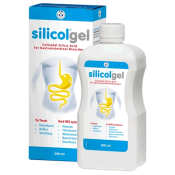What does FODMAP stand for?
FODMAP is an abbreviation standing for Fermentable Oligosaccharides, Disaccharides, Monosaccharides And Polyols.
What are FODMAPs?
FODMAPs are classes of simple, short-chain carbohydrates that are not well broken down in your body and therefore are unable to be absorbed properly in your small intestine.
The small intestine is the major site for absorption of the many nutrients your body requires. If not absorbed in the small intestine, food will continue along the digestive tract until it arrives at your large intestine.
Absorption of nutrients is limited in the large intestine, although water is readily absorbed here. Instead, waste arriving in the large intestine undergoes a process called fermentation where the waste material is digested and converted into gas and short-chain fatty acids by yeast and bacteria that naturally live there.
Where are FODMAPs found?
The four categories of FODMAPs: monosaccharides, disaccharides, oligosaccharides and polyols are elements of carbohydrate, therefore they are less commonly found in protein-rich foods such as meat, poultry and fish or fats and oils.
FODMAPs are mainly found within a wide range of carbohydrate-rich foods including certain fruit, vegetables, grains, legumes, nuts and sweeteners. In our section High FODMAP foods we separate the different classes of FODMAP and consider what foods to look out for in each category.
How do FODMAPs affect us?
You should be able to digest everything you eat or it isn’t healthy, right? Not necessarily. Generally recommended as part of a healthy diet you are expected to include a vast range of fruit, vegetables, grains, nuts and legumes in your diet, but actually your body can’t fully digest some of them. This component of food is called dietary fibre.
Instead, they continue through the digestive tract partially undigested and then act as a source of food for the microbiota or bacteria that live in your gut. For most people this is a natural process, which causes no issues, fermentation actually produces small-chain fatty acids that have been linked to several health benefits and a reduced risk of disease.
However, the fermentation of FODMAPS in people with IBS or other functional gastrointestinal disorders may result in a flare up of troublesome symptoms. Refer to our page of High FODMAP foods to see if you can identify any common triggers.








